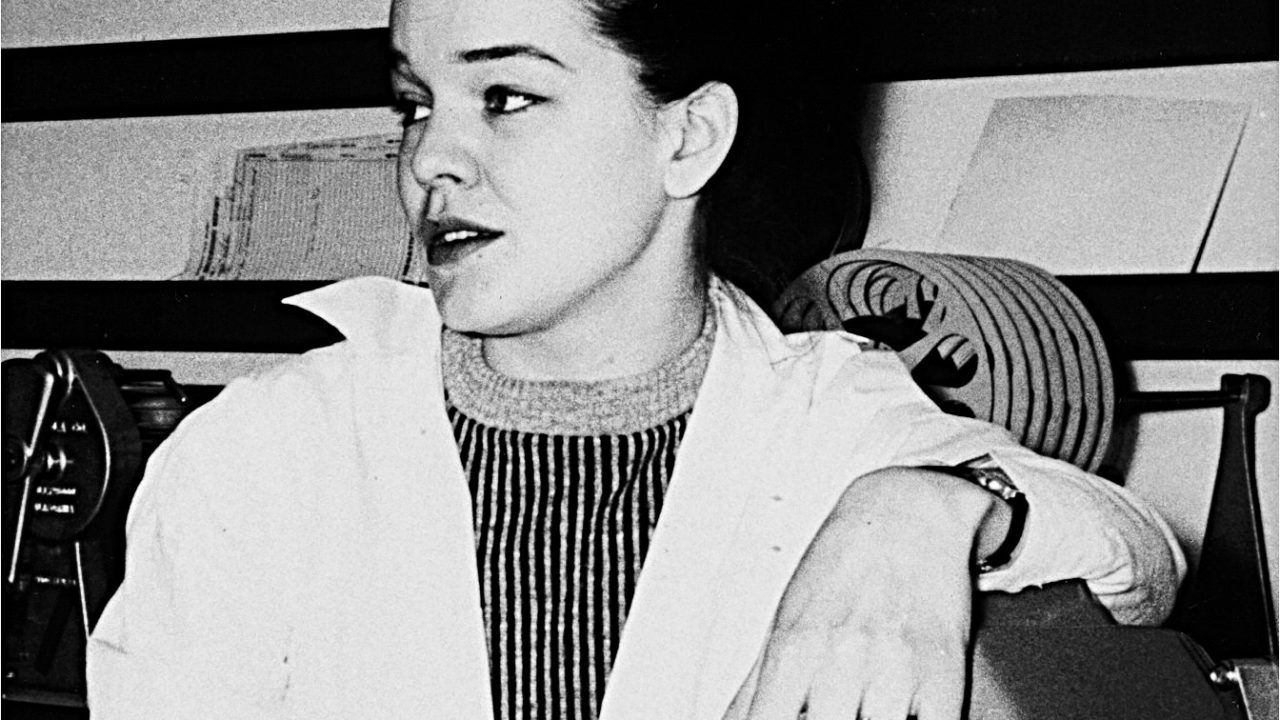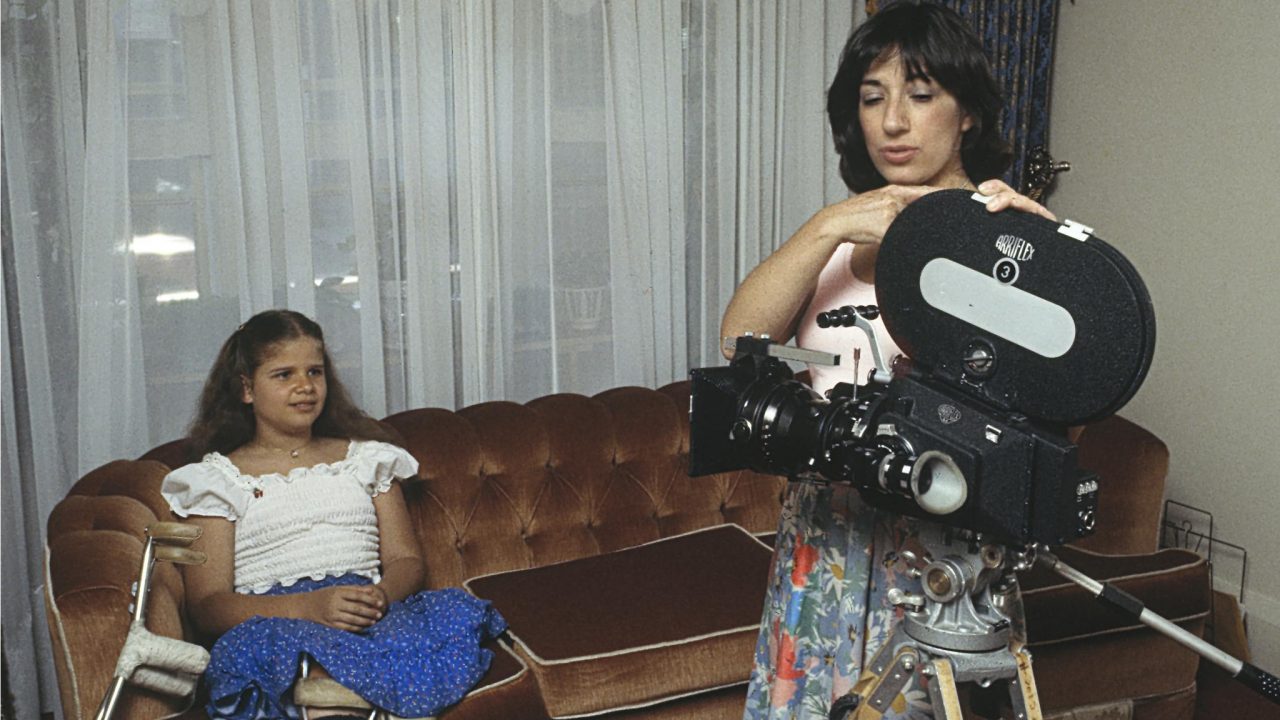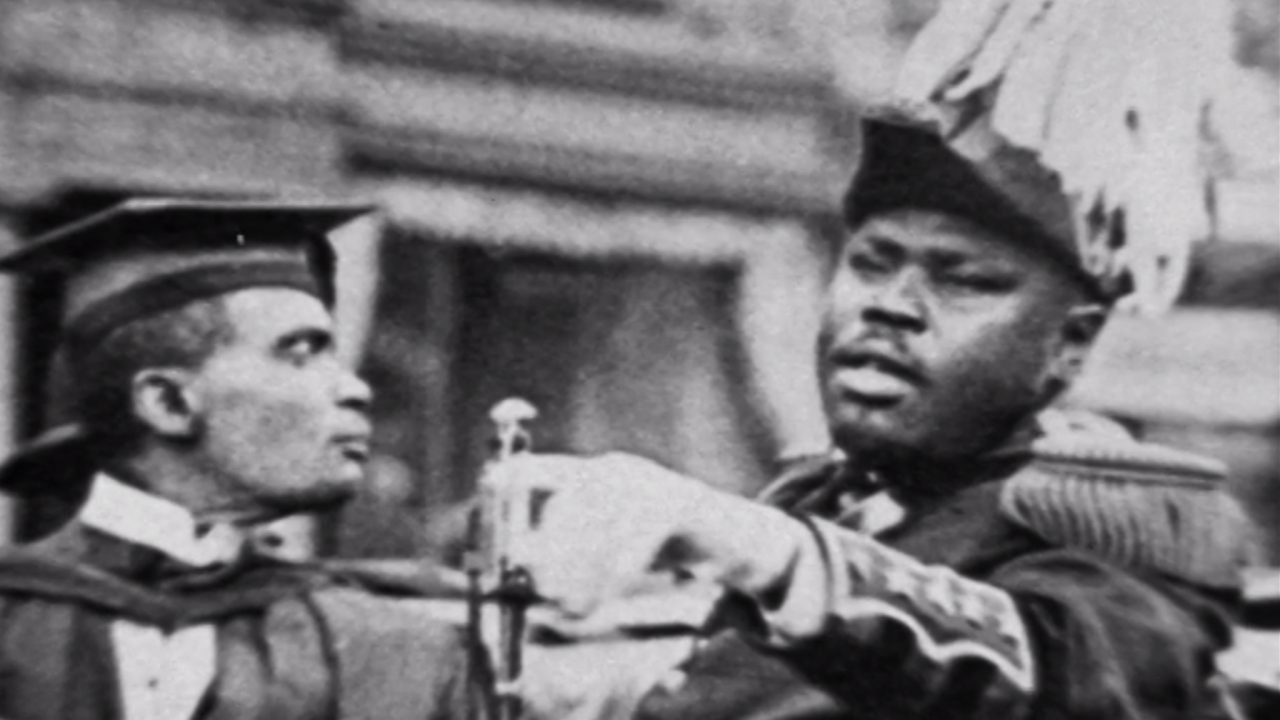
Hot Docs Honours Trailblazing Work of Studio D
Hot Docs Honours Trailblazing Work of Studio D
It was a simple and brilliant proposition. If one short film can pack a punch, tell a powerful original story, then a feature-length program of five-minute shorts can contain multitudes.
It was 1989 and Rina Fraticelli and her colleagues at Studio D were seeking ways to commemorate two important simultaneous events — Studio D’s 15th year as the world’s first women’s production unit and the NFB’s own 50th anniversary.
“There’d been talk of holding conferences and publishing books, that kind of thing,” says Fraticelli, executive producer at Studio D since 1987, “but at a certain point we said, why don’t we use this opportunity to actually generate films — and bring some new voices into the mix. The short film is a wonderfully versatile format, and it can be an empowering form for emerging filmmakers. And a series meant we could represent a wide spectrum of viewpoints and experience.”
The call went out to women filmmakers across Canada, inviting proposals for “snapshots of the world from a feminist perspective.” Successful applicants would each get five rolls of film, ten thousand dollars — and full creative freedom within the five-minute confines of the project. Lack of experience would not be an obstacle. Hundreds of applications poured in, and over one intense weekend the jury convened at the Banff Centre to make a final selection of sixteen projects.
The result was Five Feminist Minutes, a groundbreaking and wide-ranging program of shorts that included agitprop animation from a Toronto sex-trade advocate, a comic evocation of a Chinese-Canadian girlhood, a body-positive music video called We’re Talking Vulva and thirteen other titles.
Released in 1990 as a feature-length program, Five Feminist Minutes circulated widely, bringing a host of new cinematic storytellers to the fore, many from communities where filmmaking opportunities were scarce or non-existent, and helping to launch or advance the careers of indie director Ann Marie Fleming, filmmaker/broadcaster Sook Yin Lee, performance artist Shawna Dempsey and others.
Picking up the Thread…
Three decades later, with the NFB now marking its 80th anniversary and Studio D marking its 45th, the NFB has invited four contemporary women directors to pick up the thread. Their work, four new shorts made in the spirit of Five Feminist Minutes, is premiering at the 2019 edition of Hot Docs, screening alongside the four original FFM titles that served as inspiration.
The inventive reboot is part of a bigger NFB retrospective at this year’s festival, a program curated by Lynne Fernie and Kiva Reardon, showcasing the pioneering work of Studio D and women filmmakers at the NFB.
“Five Feminist Minutes was a landmark initiative in Canadian cinema, rooted in the imperative to broaden the range of women’s voices on Canadian screens and expand the creative opportunities for women filmmakers,” says Michelle van Beusekom, Executive Director of the NFB’s English Program. “The values shift sparked by Studio D and initiatives like FFM is now firmly anchored in the NFB’s core production culture — and it was a fun challenge to pick up the thread, working with four contemporary filmmakers from different parts of the country.”
The idea began as a conversation at TIFF last year between van Beusekom and Shane Smith, the Director of Programming at Hot Docs. “Shane lobbed out the idea of a contemporary revisiting of Five Feminist Minutes, a smaller-scale project that could be presented within the context of Hot Docs’ 2019 tribute to the NFBs 80th anniversary,” says van Beusekom. “I loved the idea, and although the timing was insanely tight, the studios mobilized quickly, started reaching out to filmmakers, and we were able to produce four smart films that put different aspects of women’s experience sharply in focus.”
Five Feminist Minutes 2019 — the four new shorts and four original FFM titles — are being showcased in the Redux program, and will be available online at nfb.ca as of May 1.
- Lake: Working with an all-female, all-indigenous crew, Cree director Alexandra Lazarowich riffs on classic verité to fashion contemporary portraits of women net-fishing in Northern Alberta, drawing inspiration from Minqon Minqon: Wosqotomn Elsonwagon (Shirley Bear: Reclaiming the Balance of Power), Catherine Martin’s profile of the Wolastoqiyik/Malecite artist Shirley Bear known as Minqon Minqon (Rainbow Rainbow). Produced by Coty Savard and David Christensen at the NorthWest Studio. Pictured below: Charlene Moore, Maureen Caudron-Bell, Kevin Bell, director Alex Lazarowich, DOP Lindsay McIntyre, Jade Baxter, Jamie Linington and producer Coty Savard.

- Radical: Deanne Foley crafts a spirited profile of Mary Walsh, the Great Warrior Queen of Canadian comedy, citing the work of fellow Newfoundlander Mary Lewis whose 1990 short Come into My Parlour reclaimed ‘spinsterhood’ though an animated tribute to the great aunt who taught her to drive. Written by Mary Walsh and produced by Annette Clarke at the Quebec-Atlantic Studio. Pictured below: Deanne Foley, Mary Walsh and Annette Clarke.
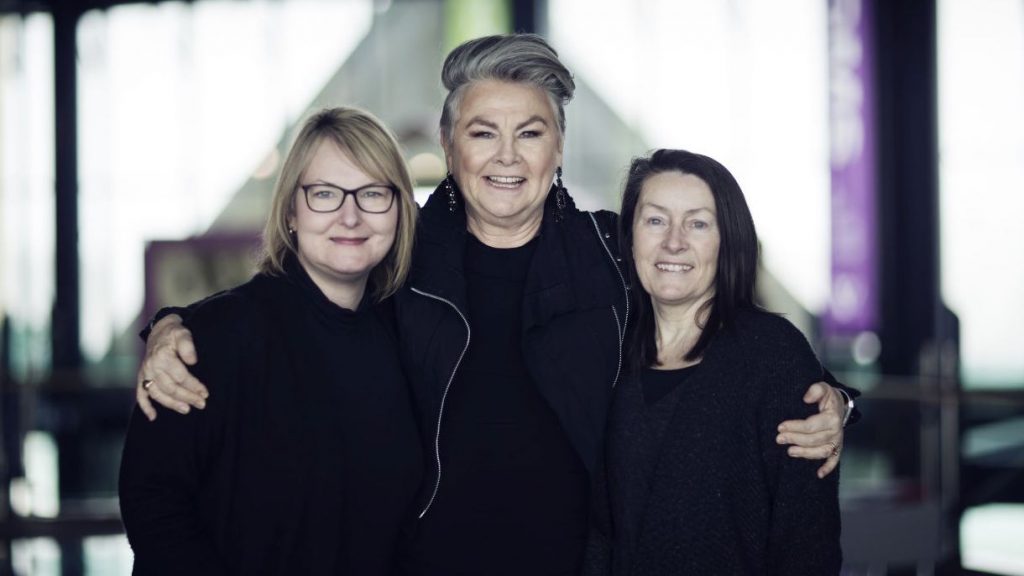
- Question Period: Ann Marie Fleming engages with an inquisitive group of recently settled Syrian refugee women. One of the original FFM filmmakers, Fleming cites her own remarkable New Shoes: An Interview in Exactly Five Minutes, which employs astonishing narrative shorthand to trace the trajectory of a doomed love affair. Produced by Shirley Vercruysse at the BC & Yukon Studio. Pictured below: DOP Lindsay George, line producer Jennifer Roworth, Manar Alsaid Ahmed, and director Ann Marie Fleming.
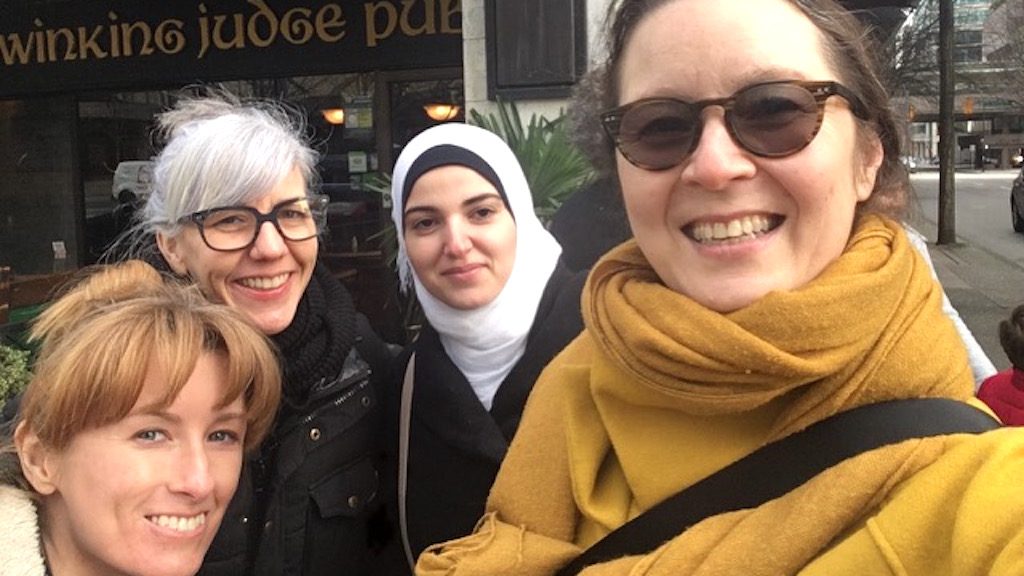
- Camera Test: Joyce Wong muses on what gets lost when female voices are stymied during the creative process, a project inspired by The Untilled Story, in which Quinn and Frances Leeming craft a mischievous feminist take on vintage NFB instructional films, tipping their hat to the dance routines of Busby Berkeley. Produced by Justine Pimlott at the Ontario Studio. Pictured: Amy Matysio in scene from film.
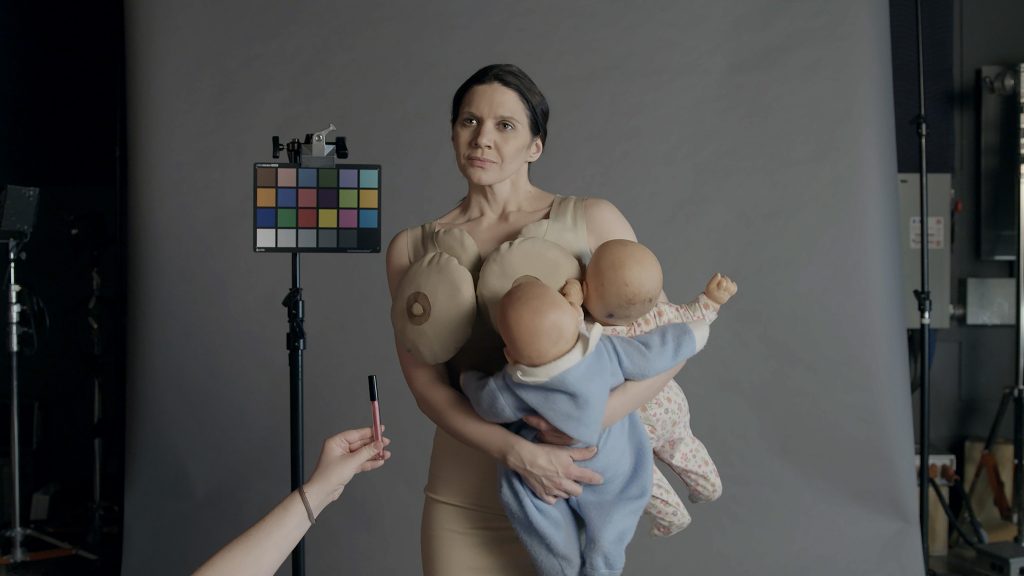
Rina Fraticelli: “It was an explosive and exciting time”
Fraticelli remembers the late 80s as a particularly fertile period for Canadian women filmmakers and for Studio D in particular, which was coming off a string of high-profile hits that included Oscar-winners like Beverly Shaffer’s I’ll Find a Way, Terre Nash’s If You Love This Planet, and Cynthia Scott’s Flamenco at 5:15,along with groundbreaking films like Older Stronger Wiser by Claire Prieto, Long Time Comin’ by Dionne Brand, and Doctor, Lawyer, Indian Chief by Carol Geddes, and Some American Feminists by Nicole Brossard, Luce Guilbeault and Margaret Wescott — all of which will be screening in the Hot Docs Redux programme.
“It was an explosive and exciting time, with a sense of expanding possibilities for women filmmakers,” says Fraticelli, “but there was also a growing awareness of the obstacles facing women in certain communities. Kathleen Shannon had begun to look at these issues with the Working Mothers series, and with Five Feminist Minutes we made a conscious effort to put the means of production directly into the hands of women, reflecting a range of voices and experiences that was as diverse as possible.”
Su Ditta, currently the Executive Director of Peterborough’s Electric City Culture Council, was the National Gallery’s Associate Curator of Media Arts at the time and part of the FFM jury — a group that included filmmakers Loretta Todd and Sylvia Hamilton along with Studio D producer Mary Armstrong, Studio D marketing officer Annette Clarke and Fraticelli herself.
“Five Feminist Minutes came at a crucial time in the history of women’s filmmaking in Canada,” says Ditta. “It really threw open the doors, responding to the critique that Studio D was dominated by white middle class women. It helped to flesh out the feminist agenda, creating space for more experimental work, and it offered production opportunities to many women who’d not had access until then.”
Independent producer Mary Armstrong was working on The Burning Times, another Studio D production, when Fraticelli assigned her to work alongside Nicole Hubert and Josée Beaudet on the production. “Nothing like Five Feminist Minutes had ever been done before,” says Armstrong. “It was an innovative and inexpensive way to support emerging filmmakers. The message was simple: ‘go out and make a short film.’ Directors were given complete freedom.”
Broad appeal & edgy indie branding
Distribution posed a challenge, recalls Armstrong. “It was such a disparate collections of shorts, so the question was how to show them. In the end we distributed them as a feature-length program, an approach that proved surprisingly successful.”
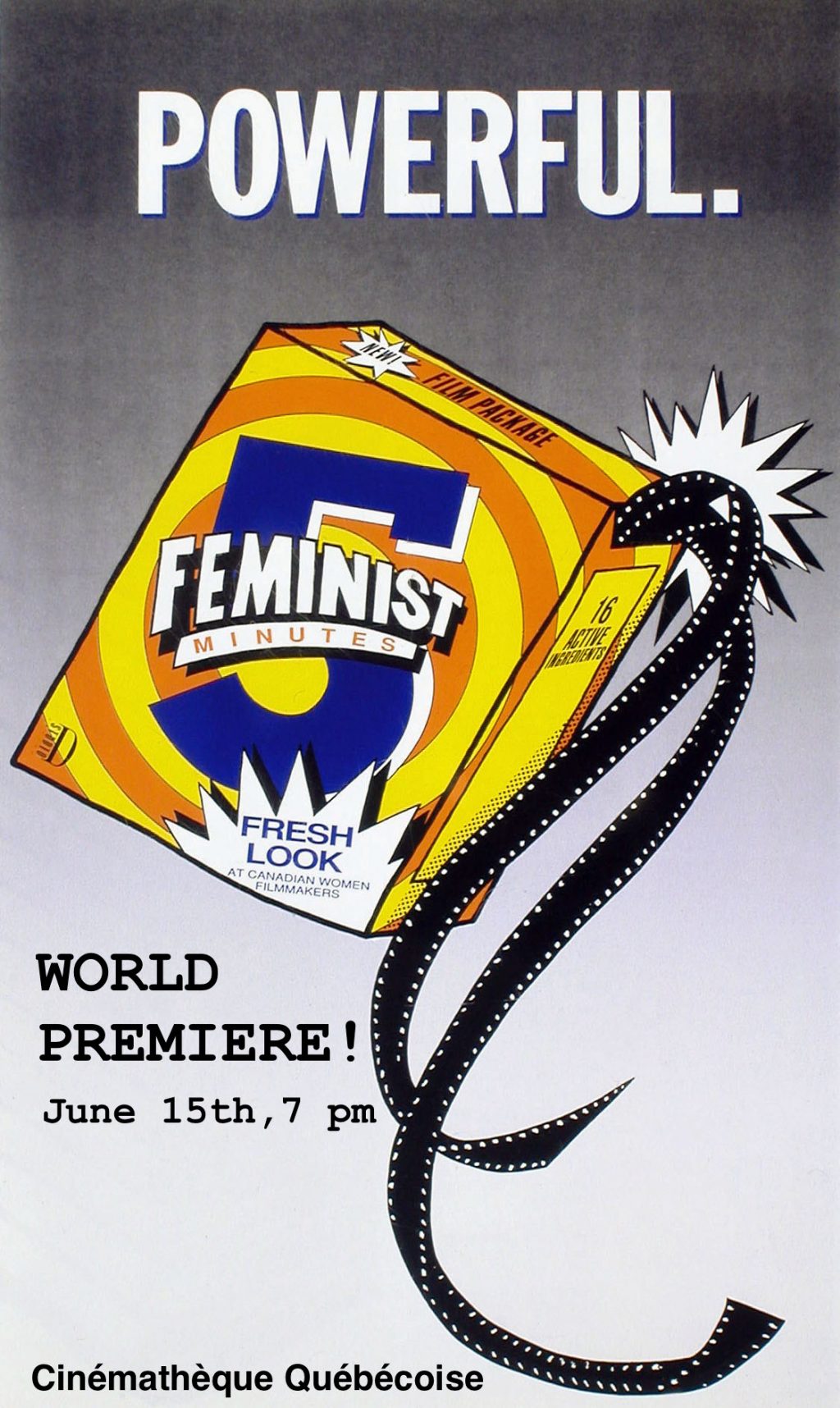
FFM got its world premiere on June 15, 1990, screening to a standing-room only audience at Montreal’s Cinemathéque Quebecoise, an event attended by many of the participating directors. “It was thrilling,” says Fraticelli. “I remember the electric feeling as we walked out of the theatre, the pleasure we all felt that so many different voices had found their place. It exemplified everything we were trying to communicate, how wrong it is to pigeonhole feminist expression.” Pictured above: the poster for the 1990 premiere.
The program went on to circulate widely for the next two years, appearing at multiple festivals, women’s centres and community events. The Elizabeth Fry Society and Montreal Sexual Assault Centre were among the many organizations that hosted benefit screenings of the program. The distribution effort benefitted from a partnership with to the Canadian Filmmakers Distribution Centre (CFMDC), which got the program into numerous artist-run spaces and more alternative venues.
“Distribution was a big part of the success of Five Feminist Minutes,” says Su Ditta, “and the association with the CFMDC was very important. It branded the project with an edgy Indie character.”
Annette Clarke, now executive producer of the Quebec-Atlantic Studio, was a marketing officer at Studio D at the time. She credits the eclectic nature of the collection to its popularity. “The diverse nature of the line-up spoke to women across the country. At the time the NFB had marketing officers in all our studios, worked exclusively on distributing feminist films. This network and the invaluable support from women’s groups created a groundswell of local screenings. It was an awful lot of fun.”
Other titles in the 1990 Five Feminist Minutes series include: No Choice, directed by Christene Browne, featuring women living in Toronto public housing addressing poverty and reproductive rights; Exposure, an early exercise in intersectionality from Michelle Mohabeer, reflecting on the overlapping issues of colonialism, sexual identity and race; A Letter from Violet, Elaine Pain’s tribute to the early women’s rights activist Violet McNaughton; Shaggie, Janis Cole’s searing portrait of a woman trapped within Canada’s penal system; Prowling by Night, animation from activist/artist Gwendolyn, documenting police harassment of Toronto sex-trade workers; Too Tough, Marie Annharte Baker’s poetic reflection on the experience of Indigenous women in Canada’s cities; Family Secrets, Lorna Boschman’s powerful short drama on the theme of incest; Rhéa, Jennifer Kawaja and Angele Gagnon’s depiction of repressive marriage against the backdrop of ecological dystopia; Petit Drame dans la vie d’une femme, Andrée Pelletier’s wryly humorous account of a young girl’s “coming of age”; Let’s Rap, Alison Burns’ rhythmic survey of the “views and blues” of contemporary Canadian women; We’re Talking Vulva, Shawna Dempsey and Tracey Traeger’s joyously body-positive rock video; and Escapades of One Particular Mr Noodle, a comic childhood memoir from Sook Yin Lee featuring a memorable Chinese pop arrangement of Guantanamera.
NFB Women at Hot Docs 2019
The 2019 festival lineup also features a wide range of new work from women directing at the NFB, including the feature documentaries: Because We Are Girls, directed by Baljit Sangra; Conviction, co-directed by Teresa MacInnes, Ariella Phalke and Nance Ackerman (coproduced with Sea to Sea productions); and Tasha Hubbard’s nîpawistamâsowin: We Will Stand Up (coproduced with Downstream Documentary Productions), which opens the festival on April 25. Kat Cizek is also presenting her latest interactive documentary Supreme Law, and Julia Ivanova’s 2016 feature Limit is the Sky is getting its Toronto premiere as part of the “Focus On” retrospective of Julia’s work
Click here for full details of the Redux Program at Hot Docs.
Five Feminist Minutes 2019 and the four original inspiration films will be available for viewing on NFB.CA as of May 1.
